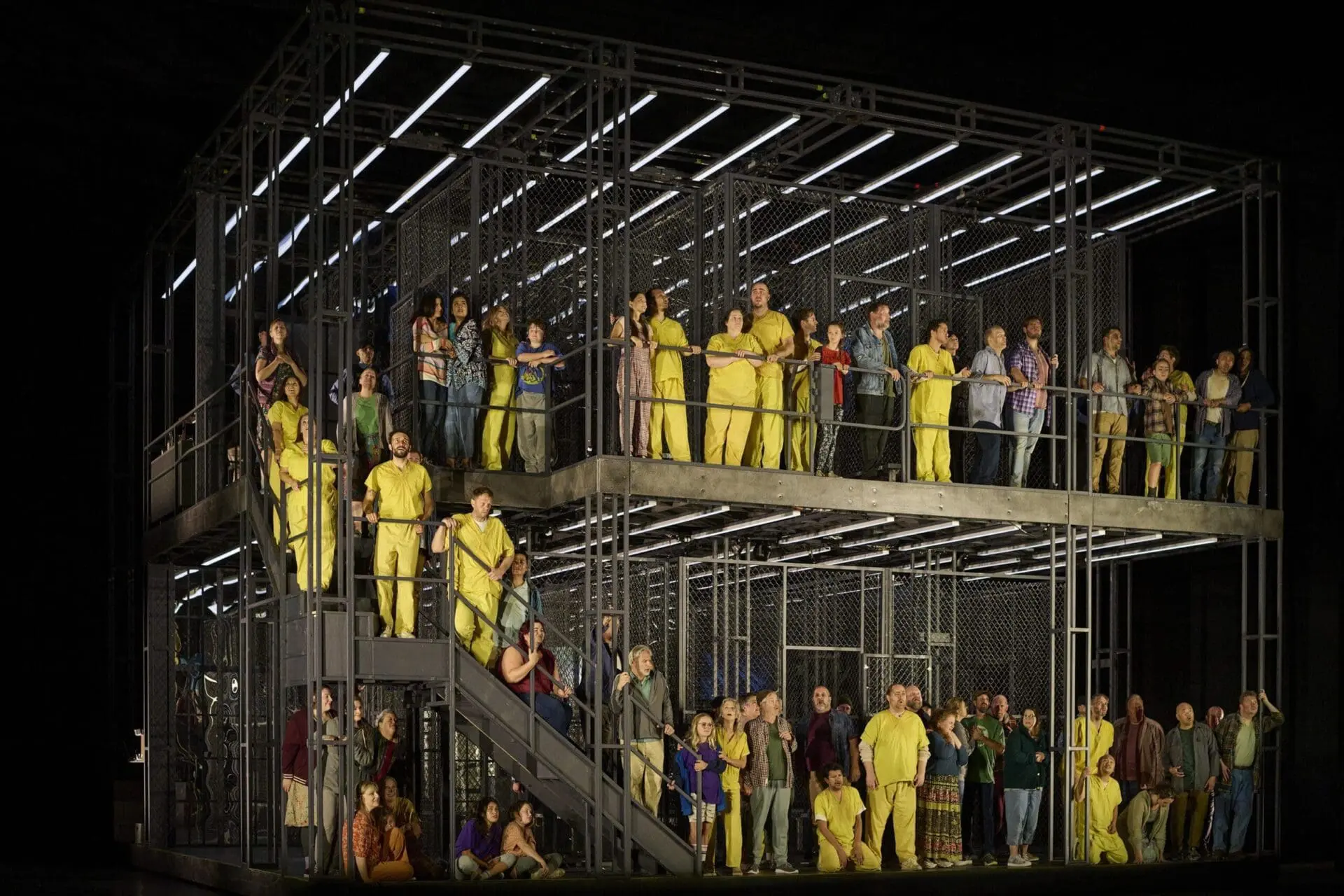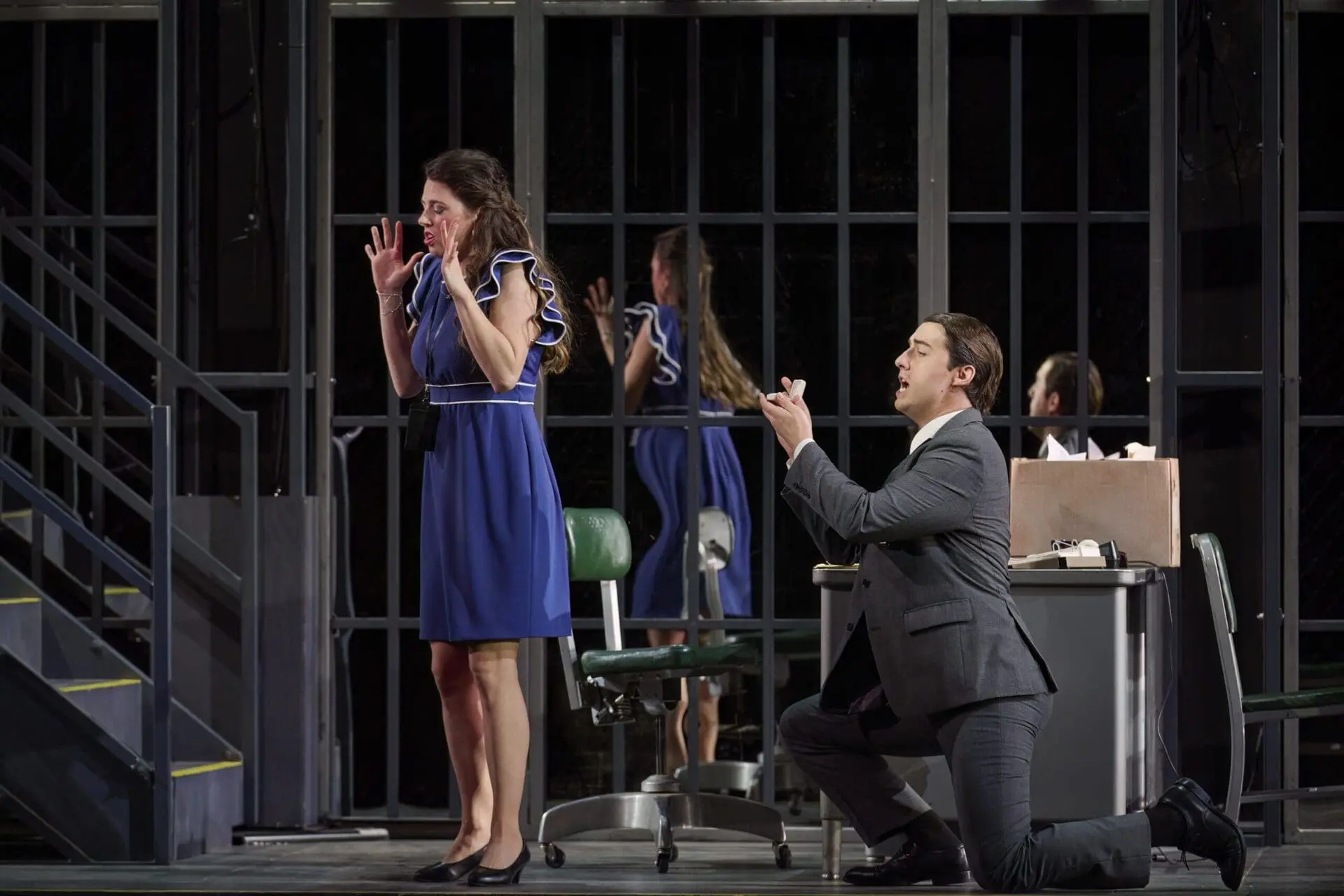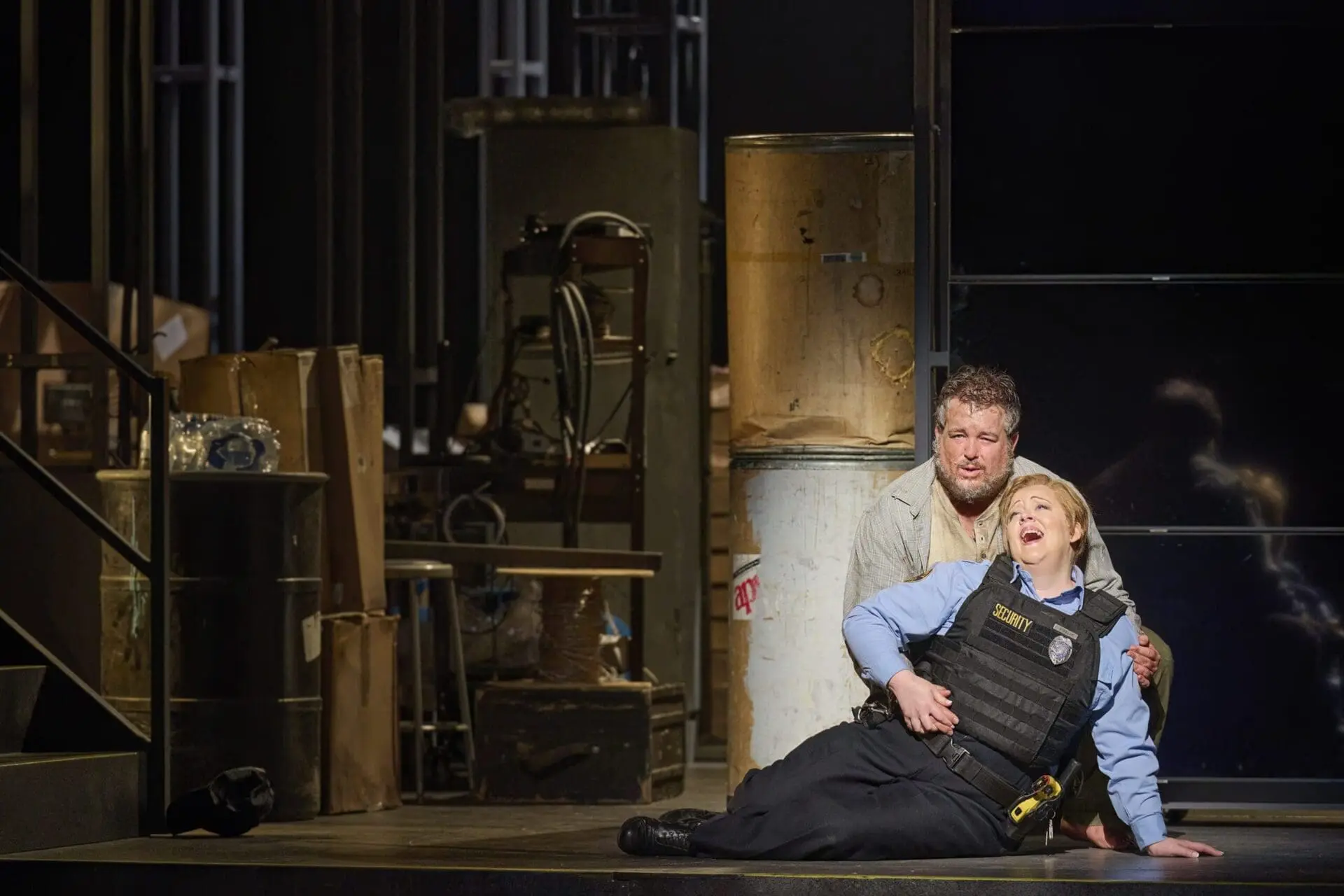Beethoven famously regarded his only opera, Fidelio, as a problem child that cost him dearly, and certainly it took about a decade from 1804-1814 and three distinct tries for him to get to the version that holds the stage today and that opened the Canadian Opera Company’s 2023/24 season. Despite its enduring popularity, it remains a problem child that defies easy identification in the repertoire. Perspectives on its status vary from those that cast it as a weak, irredeemably flawed piece and those that see it more as a unique experiment that pushed the boundaries in its time of what an opera could be and do.
Its two acts (three in the original version) are undeniably uneven in length, structure and musical content. It starts out quite conventionally as a numbers opera charting the secondary relationship between Marzelline and Jaquino, then morphs into something much more serious as it focuses on Leonore’s rescue of her husband, Florestan, from the depths of its prison setting and the clutches of his murderous archenemy, Don Pizzaro. Act 1 can be seen as a relatively slight dramatic setup for the main rescue action, though when it comes the drama is less in the action itself than the value judgements it embodies about freedom, equality, and defiance of tyrannic authority. Musically, the latter part of Fidelio, with its thunderous orchestration and triumphant vocal lines, is more akin to the 9th Symphony and the Missa Solemnis than any opera. Fidelio, in fact, has very little action in any conventional dramatic (or operatic) sense.
It’s not easy to stage the work in a way that comfortably accommodates all its disparate elements, though director Matthew Ozawa has come up with a contemporary, somewhat US-oriented, interpretation that works quite effectively to unify the work’s twists, turns and rough edges. First mounted at San Francisco Opera, it plays off imagery familiar from news broadcasts, not so much of prisons but of refugee containment centres along the U.S. southern border. Set and projection designer Alexander Nichols has constructed a multi-level block of cages for the prisoners, garishly lit and with lots of surveillance screens. The set revolves (a bit noisily, to be sure) to show the facility’s back offices, which serve effectively for the scenes that in the original are set in the courtyard of the prison.
Jessica Jahn’s costuming is contemporary, with the baseball-capped guards looking like U.S. border security agents. There are other U.S. references: the references to “king” in the original are changed to “president,” while Don Pizarro, as vividly played by German baritone Johannes Martin Kränzle, presents as a swaggering cross between Richard Nixon and Donald Trump. Despite the specificities, the production still provides a good setting for the more universal themes Beethoven proclaimed in the second half, themes that have seen the opera used as an emblem to mark milestones as disparate as the defeat of Napoleon in performances at the Congress of Vienna, the defeat of the Nazis, the reopening of German and Austrian opera houses after World War II, and the fall of the Berlin Wall.

A scene from the Canadian Opera Company’s production of Beethoven’s Fidelio Ⓒ Michael Cooper
Besides criticism of the structural defects of the opera, Beethoven has also been chided as a composer who writes for voices as if they were instruments of the orchestra. Certainly, it’s not an easy sing, and especially when the orchestra itself gains exciting momentum in the later scenes. This production boasts a distinguished international cast, led by Finish soprano Miina-Liisa Värelä as Leonore and American tenor Clay Hilley as Florestan, both making COC debuts. Hers is a commanding dramatic instrument, burnished in its middle and lower registers, that had impressive musical measure of her Act 1 “Abscheulicher!” aria, in which she resolves to save her husband at all costs, and proved a fine complement to Hilley in their duets at the end of Act II. Hilley is emerging as the tenor of choice in the heroic German fach, and (heard at the third performance, Oct. 7) marshalled a beautifully rounded sound, tonally secure and finely tuned. From his opening aria, “Gott, welch Dunkel hier!”—rather than a sustained loud cry of desperation he opted for a moving crescendo and diminuendo on the long-held first word—to those duets after his release, he emerged vocally as a truly heroic figure.
The cast around these two is very strong. Kränzle was a focal point in all his appearances, thrilling in his Act 1 “Revenge” aria, more power-hungry than darkly evil, and, in a cynical touch at the end of this production, looking as if he has not been beaten and is ready to wreak further havoc. Russian bass Dimitry Ivashchenko, though battling allergies, brought some sonorous humanity to the jailer, Rocco, while the other principle low voice, Serbian bass Sava Vemic, was a distinguished Don Fernando, making the relatively shorter role seem greater than written.

Anna-Sophie Neher (Marzelline) and Josh Lovell (Jaquino) in the Canadian Opera Company’s production of Beethoven’s Fidelio, 2023, Ⓒ Michael Cooper
Canadian tenor Josh Lovell did as much as he could with Jacquino (the part fell victim to cuts as Beethoven revised the opera) and made a fine partner for soprano Anna-Sophie Neher, who brought Marzelline to vivid young life. Tenor Wesley Harrison and bass-baritone Alex Halliday were fine in their short solos as, respectively, First and Second Prisoner.
The chorus in this opera is almost a character in itself, with its own solo in the Prisoners’ Chorus of Act 1, then as a major part of the ensemble in the glorious music Beethoven wrote for the final version of Fidelio to celebrate the triumph of virtue and goodness over evil. It’s been about 15 years since the COC Chorus has performed this music, though it sounded magnificently in this latest iteration. And the COC Orchestra, in a tautly paced performance led by company Music Director Johannes Debus, sounded as if this music was bred in the bone. You can argue that Fidelio is Beethoven’s weakest child all you want, but in this performance the production built to a thrilling conclusion that was exhilarating in the sheer intensity of its musical drama.
Related Content ⬇
Opera Canada depends on the generous contributions of its supporters to bring readers outstanding, in-depth coverage of opera in Canada and beyond. Please consider subscribing or donating today.















